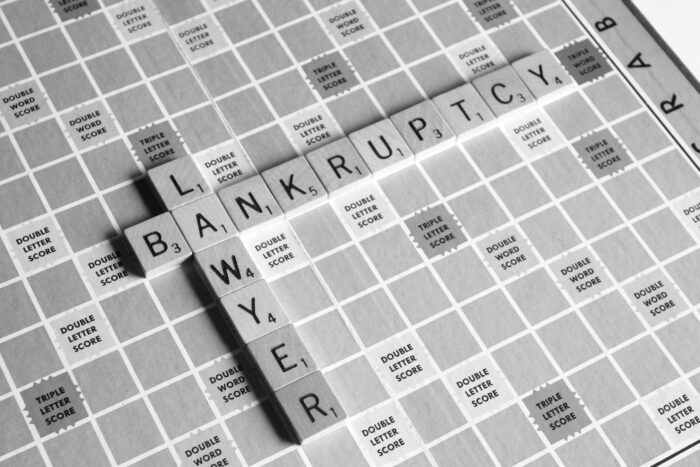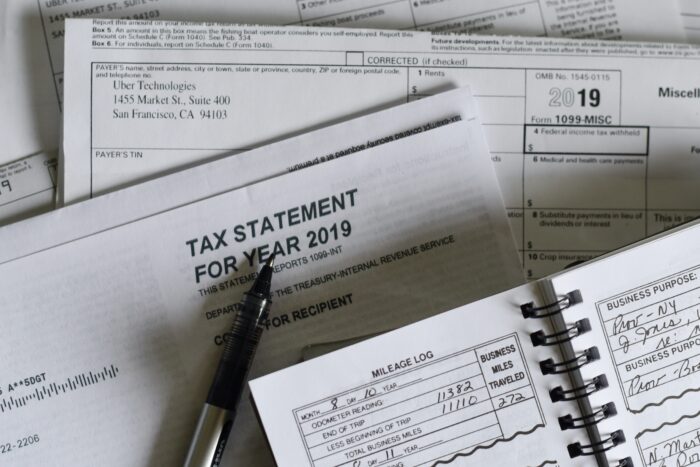How to Make Your Own Will: A Step-by-Step Guide: Oregon

Creating a will is one of the most important steps you can take to ensure your wishes are carried out after your death. While many people assume they need a lawyer to draft a will, Oregon law allows individuals to make their own valid wills — and for many, a do-it-yourself (DIY) will is a […]
State Regulation Preventing Creditor Harassment: Protecting Consumer from Aggressive Collection Practices

Debt can be a heavy burden for many individuals, and dealing with creditors can often exacerbate stress and anxiety. While creditors have the legal right to collect debts, certain practices are prohibited to protect consumers from harassment. Many states have enacted additional regulations aimed at preventing creditor harassment, ensuring that individuals facing financial difficulties are […]
Wage Garnishments

If you’ve hit a financial rough patch and are struggling to keep up with your payments, it’s easy for your accounts to fall behind. Eventually, your debts may be sent to collections, and you might face a legal situation. This could lead to a summons, and soon, you’ll find yourself being sued by your creditors. […]
Understanding Your Mini-Miranda Rights When Dealing with Debt Collectors

Beware If you have recently heard something like “This communication is from a debt collector attempting to collect a debt. Any information obtained from you will be used for that purpose.” This statement is known as Mini- Miranda warnings and it exists to protect you. What is the Mini-Miranda? The name may be familiar to […]
Your Rights Under the Fair Debt Collection Practices Act (“FDCPA”)

Consumers who have fallen behind on paying their bills can often find themselves targeted by aggressive debt collectors who have been hired by their creditors. These situations can be confusing and stressful. There are laws in place to protect consumers – and make sure that they are properly informed during the debt collection process.
Statute of Limitations for Unpaid Debts

Statutes of limitations are established to protect debtors from being exposed to debt collectors or creditors for a specific length of time and prevent those debtors from being exposed to legal actions for old debts. What Is the Statute of Limitations for Debt? The statute of limitations for debt is the amount of time during […]
Wage Garnishment During a Debt Settlement Program

Wage garnishments are extremely rare in debt settlement programs. Here are some things to know about them and how we resolve them when they happen. WHAT IS WAGE GARNISHMENT? A wage garnishment is a legal proceeding through which a portion of a debtor’s earnings is withheld for the payment of a debt. This process allows […]
Debt Collection Scams Hurt Unsuspecting Consumers

There is a high number of complaints involving debt scammers every day. It is safe to assume that these scammers continue their efforts because they are getting money from unsuspecting people. It is important for you to learn how to identify debt collectors from scammers and avoid being a victim of a debt collection scam. […]
The Statute of Limitation on Debt in Ohio

If you live in Ohio and have old debts, the statute of limitations could be your ally. There are some important things to know about the state law and how you can avoid paying off a debt that is too old to be collected. What is the Statute of Limitations? The statute of limitations for […]
What To Say to Creditors While You Are in A Debt Settlement Program

If you are facing financial hardship, it is important for you to understand how to communicate with your creditors or debt collectors while you are in a debt settlement program. If you are enrolled in a debt settlement program, you must know how a debt settlement program works. During the program, you voluntarily will agree […]
The Challenges of Bankruptcy with Your Taxes

HOW BANKRUPTCY MAY IMPACT YOUR TAX SITUATION? Filing for bankruptcy may have an impact on your taxable income. However, the extent of that impact will depend on your personal circumstances and the type of bankruptcy you file for. It is important to understand that bankruptcy may result in unanticipated adverse tax consequences and expose a […]
Tax Implications During a Debt Settlement Program or Bankruptcy

Deb settlement programs and bankruptcy may have significant implications for your tax situation. HOW MAY A DEBT SETTLEMENT PROGRAM IMPACT YOUR TAXES? A debt settlement program can get a debtor out of debt fast and save them tens of thousands of dollars, but there are a couple of minor downsides, such as potential tax liability. […]
Statute of Limitations Debt – Credit Card Collection Case In Georgia

Georgia’s Statute of Limitations Gives Credit Card Companies and Other Creditors Up to 6 years to Sue Debtors Georgia’s creditor-friendly statute of limitations gives certain creditors, like credit card companies, up to six years to sue a debtor. Consumers in Georgia who have an uncollected debt should pay attention to the statute of limitation […]
Consolidation Loans While In A Debt Settlement Program

Consumers who have fallen behind on paying their bills can often find themselves targeted by aggressive debt collectors who have been hired by their creditors. These situations can be confusing and stressful. There are laws in place to protect consumers – and make sure that they are properly informed during the debt collection process.
Obligations of Creditors and Credit Reporting Agencies Under The FCRA

In 1970, Congress adopted the Fair Credit Reporting Act (FCRA) to protect consumers and regulate how credit information is used and disseminated. The FCRA was passed to address the growth of the credit reporting industry – which compiled “consumer credit reports” and “investigative consumer reports” on individuals.
Understanding the FCRA and Your Rights

The Fair Credit Reporting Act (“FCRA”) was enacted by congress in 1970 with the goal of protecting consumers from inaccuracies, unfair reporting practices, and privacy breaches by credit reporting agencies. The FCRA helps to regulate the use of consumer reports by laying out rules covering dispute resolution, the dispersing of consumer information, how and when a party may request/use a consumer report, as well as various other consumer rights.
Understanding The FDCPA & Your Rights

The FDCPA, also known as the Fair Debt Collection Practices Act, was enacted in 1978 by Congress because of a finding of “abundant evidence of the use of abusive, deceptive, and unfair debt collection practices by many debt collectors” 15 U.S.C. § 1692. In broad terms the FDCPA was put into place in order to protect debtors from being harassed by debt collectors.
The Link Between Mental Health And Financial Stability

It is no surprise that having debt can cause stress. However, those studying the effects of debt related financial pressure were surprised to see the dramatic impact on mental and physical health, including significant increased chances of suicide.
The Difference Between Debt Settlement And Debt Consolidation

Anyone facing large amounts of debt, is under a seemingly insurmountable level of pressure. Not only getting out of the debt seems daunting, but the options can be just as confusing and stress inducing as the debt itself. There are three terms most people are likely to hear when it comes to debt resolution…
How Debt Settlement Can Lead To Improved Credit

I cannot emphasize the importance of a good credit score enough, however when minimum payments are taking over your life, you are most likely one slip up away from damaging that score, and not in a position to enjoy the benefits of a high credit score.
Alternative Solutions – Credit Counseling & BK

Consumers who have fallen behind on paying their bills can often find themselves targeted by aggressive debt collectors who have been hired by their creditors. These situations can be confusing and stressful. There are laws in place to protect consumers – and make sure that they are properly informed during the debt collection process.
